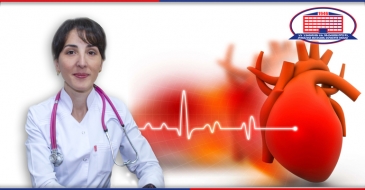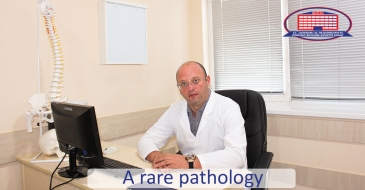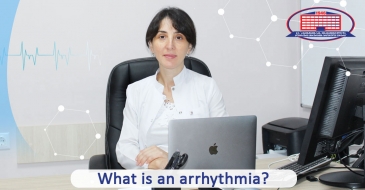Arrhythmia is an abnormal heart rhythm when heartbeats become irregular.
The first sign of arrhythmia is palpitations. Often the patient himself/herself feels an irregular heartbeat, and if the arrhythmia is asymptomatic, then its detection occurs after taking the pulse.
The cardiologist of the National Center of Surgery Khatuna Berinashvili talks with us about arrhythmia.
- Dr. Khatuna, what are the causes of arrhythmia?
- Arrhythmia is caused by many reasons. The risk factors include age, hypertension, diabetes mellitus, some congenital heart diseases, infectious damage to the heart, heart failure, myocardial infarction. Very often, excessive alcohol consumption, thyroid gland pathology, and any hormonal disorders contribute to the development of arrhythmias, hereditary predisposition is of great importance, although it is not always possible to determine the cause of the arrhythmia.
- What should be a normal heartbeat?
- The heart rate or the heartbeat depends on how much blood the heart pumps to the blood vessels. Physiologically, the heart rate increases with exercise. The normal pulse of an adult healthy person is 60-80 beats per minute, in athletes from 40 to 60, in elderly and weak people it can reach up to 90-100. In children, depending on age, the heart rate is more rapid 80-130 beats per minute.
- Could you please explain what is tachycardia and bradycardia?
- Tachycardia is a type of arrhythmia, which is characterized by an increase in heart rate - more than 90 beats per minute. In healthy people, tachycardia can be caused by the physical activity, stressful situations, oxygen deficiency, increased temperature in the environment, medication, alcohol, coffee, a sudden stand up from the bed, etc. It should be noted that tachycardia is considered physiological in children under the age of seven years.
Bradycardia means a decrease in heart rate. If a person is at rest, the heart rate is less than 60, the patient has bradycardia.
If the patient has symptoms of arrhythmia, he/she should consult with a cardiologist. You can directly contact an arrhythmia specialist - an arrhythmologist.
- How is the arrhythmia diagnosed and treated at the National Center of Surgery?
- Diagnosis of arrhythmias at the National Center of Surgery occurs through various studies:
- Electrocardiography - is a procedure when the electrical activity of the heart is recorded;
- Holter monitoring – is a small portable recording device that records an electrocardiogram from a body surface in a continuous mode for 24–48 hours;
- Stress test - this study is used to diagnose an arrhythmia, which occurs during exercise. This study can also determine whether the arrhythmia is associated with a coronary artery disease.
- Echocardiography - this study can determine whether the cause of the arrhythmia is heart muscle or valve disease;
- Coronary arteriography (coronarography) - this method of research allows us to determine the condition of the main arteries supplying the heart (coronary arteries) and establish whether there is the connection between the arrhythmia and coronary artery disease.
At the National Center of Surgery, after conducting the appropriate diagnostic tests and determining the type of arrhythmia, conservative treatment, cardioversion, implantation of a permanent Pacemaker (cardio stimulator) and a cardioverter-defibrillator implantation is successfully performed.
I also want to note that in the near future, it is planned to treat arrhythmia with a modern, safer and more effective method, by introducing electrophysiological studies and cardiac catheter ablation, which allows us to make an accurate diagnosis of the arrhythmia and determine its mechanism, destroy a small area of heart tissue that is causing arrhythmia (cell groups, additional pathways) and it provides an opportunity to finally cure the patient suffering from arrhythmia.
National Center of Surgery address – Tbilisi, Digomi Chachava street N5.
You can contact the Call-center of the National Center of Surgery at 577 11 91 19 or 2 02 25 25;
If you have some questions, you can contact the cardiologist of the National Center of Surgery Khatuna Berinashvili at 599 29 00 87.
Wish you health!









